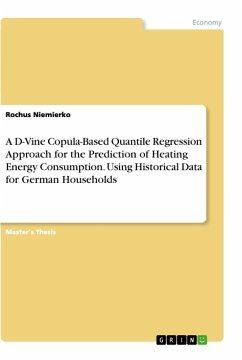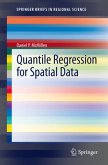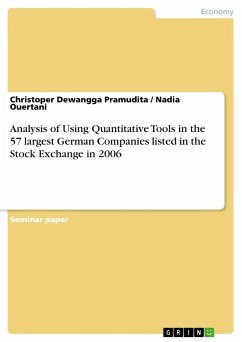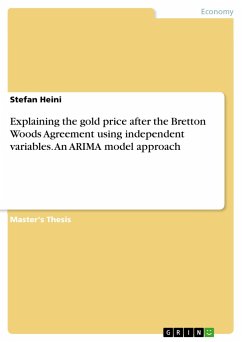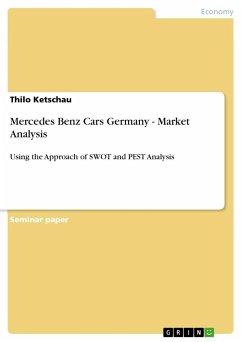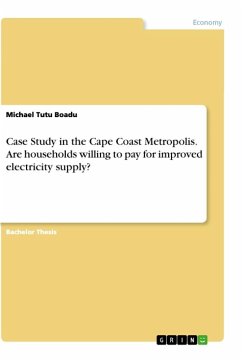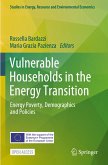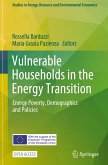Master's Thesis from the year 2018 in the subject Economics - Statistics and Methods, grade: 1,0, University of Augsburg, language: English, abstract: The aim of this thesis is to add to the as of yet mostly missing literature on how a D-vine copula based quantile regression model can be used to predicte the accurate level of energy consumption. Energetic retrofitting of residential buildings is poised to play an important role in the achievement of ambitious global climate targets. A prerequisite for purposeful policy-making and private investments is the accurate prediction of energy consumption. Building energy models are mostly based on engineering methods quantifying theoretical energy consumption. However, a performance gap between predicted and actual consumption has been identified in literature. Data- driven methods using historical data can potentially overcome this issue. The D-vine copula-based quantile regression model used in this study achieved very good fitting results based on a representative data set comprising 25,000 German households. The findings suggest that quantile regression increases transparency by analyzing the entire distribution of heating energy consumption for individual building characteristics. More specifically, the analyses reveal the following exemplary insights. First, for different levels of energy efficiency, the rebound effect exhibits cyclical behavior and significantly varies across quantiles. Second, very energy-conscious and energy-wasteful households are prone to more extreme rebound effects. Third, with regards to the performance gap, heating energy demand of inefficient buildings is systematically underestimated, while it is overestimated for efficient buildings. Therefore, The remainder of this thesis is organized as follows. Section 2 presents a concise categorization of building energy models. Section 3 presents existing data-driven methods used for the pre-diction of heating energy consumption in the residential sector. Next, Section 4 elaborates on vine copula-based quantile regression. This is followed by a description of the data employed in Section 5. Section 6 presents the empirical results and Section 7 provides the practical im-plications and contribution of the quantile regression approach introduced. Finally, the conclu-sions and limitations of this thesis are discussed in Section 8.
Bitte wählen Sie Ihr Anliegen aus.
Rechnungen
Retourenschein anfordern
Bestellstatus
Storno

